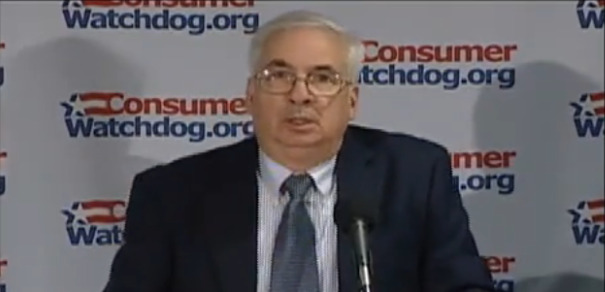
As Google grows in size, so does its political influence. And, while
this may not overly worry most people, there is one man who is keeping
a close watch on the search engine firm. He is Consumer Watchdog’s
John Simpson, and one gets the feeling that he revels in his role of
giant-killer.
Simpson thinks that Google enjoys far too much power in
Washington–not least in the
White House [1], where Deputy CTO Andrew McLaughlin is seen as
been too close to his former employers. And last week, Inside Google [2], an
offshoot of CW, broke what Simpson says is, “one of the biggest
wire-tapping scandals in U.S. history.” He’s talking about Google’s
data-collecting methods, which may have been harvesting information
that could be harmful to national security.
On Tuesday, FastCompany put some questions to Simpson about Google’s
growing influence in D.C., and these are his replies.
Why do you think there is so much panic about Google’s
influence in the White House? “I don’t see panic. I see
legitimate concern about the amount of influence Google now wields in
Washington. Google has gone from having no presence a few years ago to
becoming one of the biggest players. Last year, Google spent $4.03
million lobbying. Spending on lobbying increased 57% in the first
quarter of 2010 over the first quarter of 2009.”
According to a Google spokesperson, McLaughlin was never a
lobbyist. Do you dispute Google’s version of events?
“McLaughlin was ‘Director of Global Public Policy.’ I understand that
to mean he was attempting to shape regulations and laws to benefit
Google around the world. In simple language he’s a lobbyist. Google’s
Political Action Committee, Google Inc. NetPAC–which contributes to
political candidates–listed McLaughlin as assistant treasurer and
designated agent in a March 16, 2009 filing. He was registered as a
federal lobbyist in 2007, though Google now claims that was a
‘mistake.’”
Which side of the Google-White House partnership do you fear
the most: the Government, with its attitude to grabbing data, or
Google’s data-gathering antics? “I distrust them equally.”
How has Google’s goings-on in China affected your judgment
of the company’s dealings with governments? “Google should
never have kowtowed to China in the first place. It was good that they
announced that they would no longer censor search results on Google.cn.
However, the announcement was something of PR spin that helped them
recover from the fact that their security was breached. The recent
solution where they do not offer search on Google.cn, but offer a link
to their Hong Kong service is a compromise with the Chinese that lets
both sides ’save face,’ an all-important concept in Asia. What Google
should do is offer SSL encryption using the HTTPS protocol as the
default mode for search on its Hong Kong site. That would help protect
Chinese users of the service from Government snooping.”
Just how evil do you think that Google could be with too
much White House influence? “Power corrupts and absolute power
corrupts absolutely. The danger stems from Google’s own misguided motto
‘Don’t Be Evil.’ If you believe that’s your motto, you rapidly come to
believe that everything you do must by definition be good.”
Links:
[1]
http://www.fastcompany.com/1669718/google-white-house-washington-obama-andrew-mclaughlin-consumer-watchdog
[2] http://insidegoogle.com/







